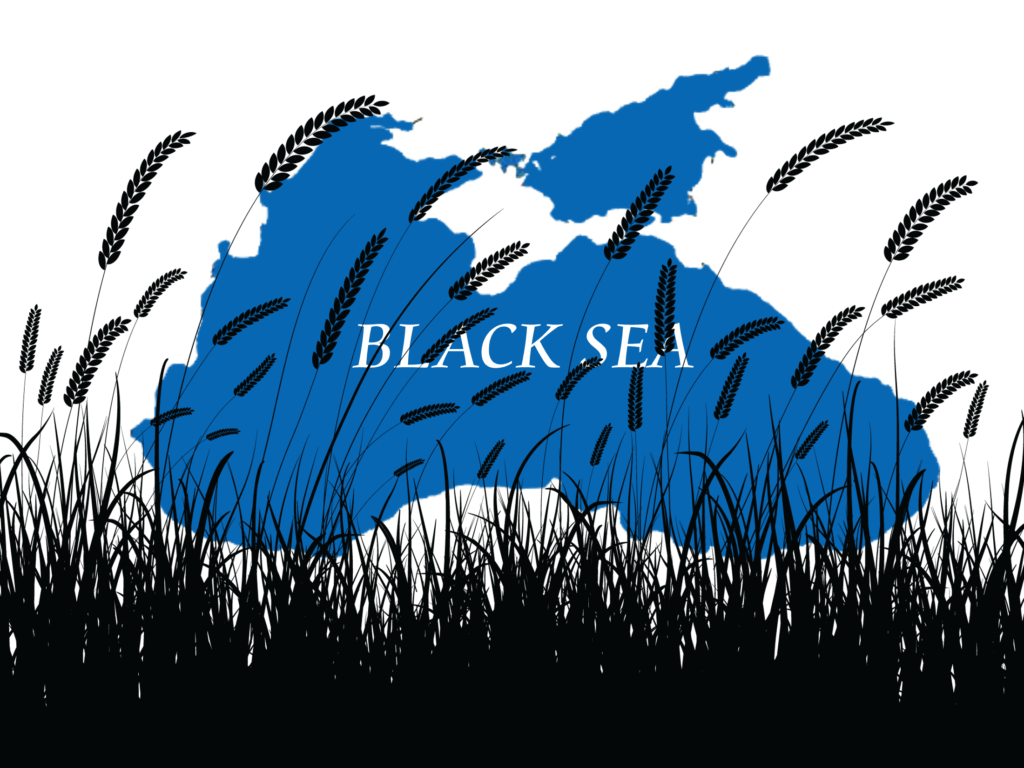Earlier this year, U.S. presidential hopeful Ron DeSantis insisted, “While the U.S. has many vital national interests — securing our borders, addressing the crisis of readiness within our military, achieving energy security and independence, and checking the economic, cultural, and military power of the Chinese Communist Party — becoming further entangled in a territorial dispute between Ukraine and Russia is not one of them.”[1] His depiction of the war as a “territorial dispute” faced backlash both from within and outside his party. Far from being a local territorial dispute, the war is having a global impact. As a result, DeSantis later backed off from his comments. He said, “What I’m referring to is where the fighting is going on now, which is that eastern border region Donbas, and then Crimea, and you have a situation where Russia has had that. I don’t think legitimately, but they had. There’s a lot of ethnic Russians there. So, that’s some difficult fighting, and that’s what I was referring to, and so it wasn’t that I thought Russia had a right to that, and so if I should have made that more clear, I could have done it.”[2]
Whether you view the West’s response to Russia’s unprovoked war in Ukraine as a fight for democracy or an attempt to secure the global food value chain, it’s clear that most Western leaders understand how critical Ukraine’s agricultural sector is to the rest of the world. Grain, like oil, is fungible. Reduce the supply of grain in one part of the world and the price for grain increases around the globe. On 17 July, Russia withdrew from a deal that had kept Black Sea supply lines open to Ukraine grain exports. Correspondents Jennifer Hansler, Alex Marquardt, and Kayla Tausche report, “Ukraine accounts for large portions of the world’s food supply, including 10% of the world wheat market, 15% of the corn market, and 13% of the barley market. … Two-thirds of the wheat that left Ukraine via the Black Sea ports went to developing countries.”[3] Faced with the negative impacts of Russia’s withdrawal from the grain deal, world leaders are scrambling.
Effects of the Russian Withdrawal
Following its withdrawal from the grain deal, Russia immediately deepened the potential global food crisis by brutally attacking Ukrainian Black Sea port facilities. Journalists Ivan Nechepurenko, Farnaz Fassihi, Victoria Kim, and Richard Pérez-Peña report, “Russia barraged Ukrainian ports … striking granaries in Odesa and mounting a show of naval force on the Black Sea in a deepening showdown that imperils a vital part of the global food supply.”[4] They note, “Russia conducted naval exercises in the northwestern Black Sea — the part near the coastline Ukraine still holds — backing up the suggestion that it could seize or destroy cargo ships of noncombatant nations.” The attacks not only destroyed infrastructure but foodstuffs as well. Reportedly, 100 tons of peas, 20 tons of barley, and 60,000 tons of grain were destroyed. These goods could have fed more than 270,000 people for a year.
With the Black Sea route for exporting grain potentially shut off, world leaders discussed other alternatives. Hansler and her colleagues report, “To keep Ukraine’s massive farming industry afloat, and with the harvest only a few months away, US and Western officials are looking for any options to increase storage capacity, and whether any more grain, wheat or barley can be driven or railed out of Ukraine. … But officials acknowledge that none of those solutions will be able to replace the millions of tons of food Ukraine was able to export from its deep water ports.” Vlada Magaletska, a former deputy minister of food and agriculture for Ukraine, and currently a senior advisor at Enterra Solutions®, told World Grain, “Even with the improvements made on the Danube River, an alternative Ukrainian route for grain exports, it can’t replace the volume of grain that is shipped via the Black Sea.”[5] Beyond the potential food crisis, other security concerns about Russia’s actions are being expressed.
Black Sea security expert Yevgeniya Gaber observes, “In the coming months, the global food supply will be increasingly constrained, especially if Ukraine’s 2023 harvest is kept off the market. But what’s worse is that Russia might make progress on its larger strategy: to assert permanent control over commercial navigation in the Black Sea.”[6] She adds, “The West should make sure it cannot succeed.”
The Way Ahead
Although every avenue to ensure Ukrainian grain gets to market should be explored, the Black Sea is critical. As Magaletska told World Grain, “[Other routes can only handle] small amounts compared to the southern ports. It’s not enough.” That’s why Gaber insists, “Ukraine’s Western supporters should address the root cause of the problem: Russia’s control of maritime routes.” She admits this solution doesn’t appear imminent. She explains, “Bulgaria, Romania and Turkey — NATO’s Black Sea powers — should send ships to escort grain transports through the Black Sea. Russia would be hard-pressed to forcefully respond, as it has lost much of its naval capability after the sinking of the Moskva cruiser and the liberation of Ukraine’s Snake Island. Unfortunately, signals from the Biden administration seem to rule out such an approach, and NATO members are not willing to get ahead of Washington.”
Gaber is right about one thing: “Ukraine’s grain is vital for keeping the world fed.” And, she insists, “Russia simply cannot be allowed to have a veto on whether it gets to market. The only long-term solution to end Russia’s policy of endless weaponization of world hunger is to firmly draw a line and stand by it. Doing any less would be disastrous. Negotiations won’t work. Appeasing an extortionist only invites more of the same.”
Concluding Thoughts
Enterra Solutions is closely monitoring the situation in Ukraine. As I told Arvin Donley, editor of World Grain, “The war in Ukraine [has] dramatically changed the global supply and demand picture.”[7] I also told him that, in order to help our clients, “We have been able to use our technology to forecast rather effectively the change in the supply chain, including the challenges of getting grain out of Ukraine, which has resulted in price inflation and demand signal changes from consumers and to be able to use that to balance demand and supply across the global value chain.” Donley notes, “Combining Magaletska’s experience and knowledge of the war-torn region with Enterra’s artificial intelligence-based technological analysis provides an in-depth picture of how the Russia-Ukraine war will impact markets and influence how its clients do business.” As I told Donley, “If a supply or demand balance goes undetected in the agricultural space, the consequences can be devastating to a company.” There are no quick fixes to end the Ukraine war; nevertheless, opening Black Sea routes for the export of grain, both from Russia and Ukraine, is essential for the security of the global food value chain.
Footnotes
[1] Meg Kinnard, “DeSantis walks back ‘territorial dispute’ remark on Ukraine,” AP, 23 March 2023.
[2] Ibid.
[3] Jennifer Hansler, Alex Marquardt and Kayla Tausche, “Concerns mount over potential for food crisis amid Russian moves to cripple Ukrainian grain exports,” CNN, 27 July 2023.
[4] Ivan Nechepurenko, Farnaz Fassihi, Victoria Kim and Richard Pérez-Peña, “In Black Sea Showdown, Russia Batters Ukraine’s Ability to Export Grain,” The New York Times, 21 July 2023.
[5] Arvin Donley, “Company using AI to fight food insecurity,” World Grain, 20 July 2023.
[6] Yevgeniya Gaber, “Russia is extorting the West over grain. Appeasement will not work.” The Washington Post, 26 July 2023.
[7] Donley, op. cit.





